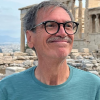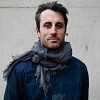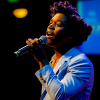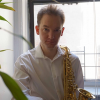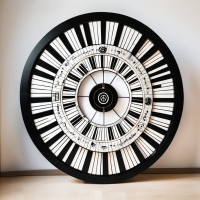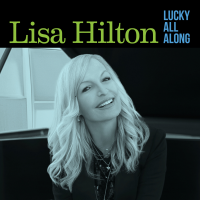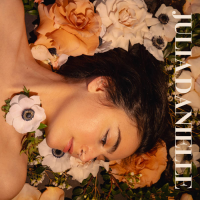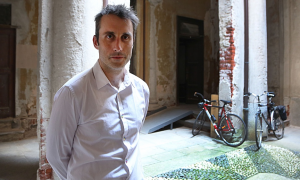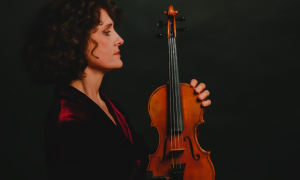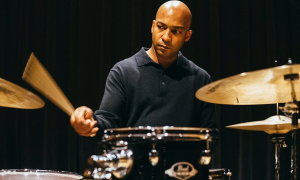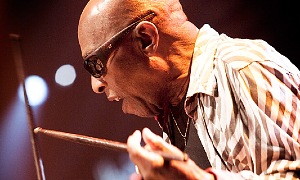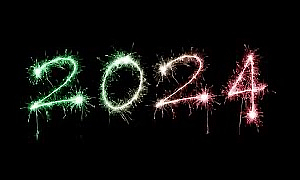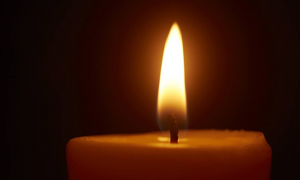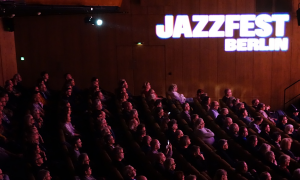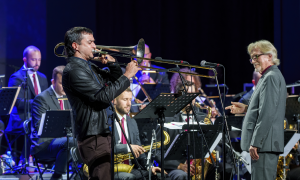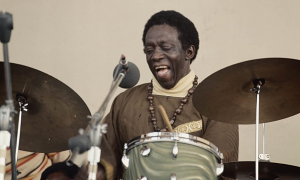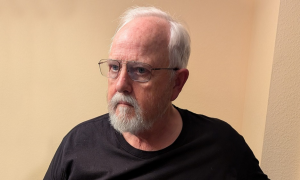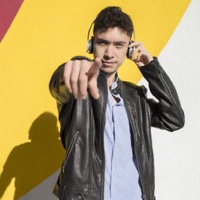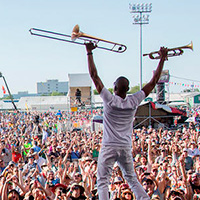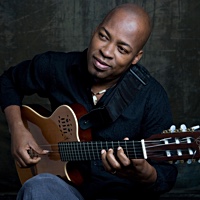Home » Jazz Articles » Interview » Alexander Hawkins: Music as a Generous Space
Alexander Hawkins: Music as a Generous Space
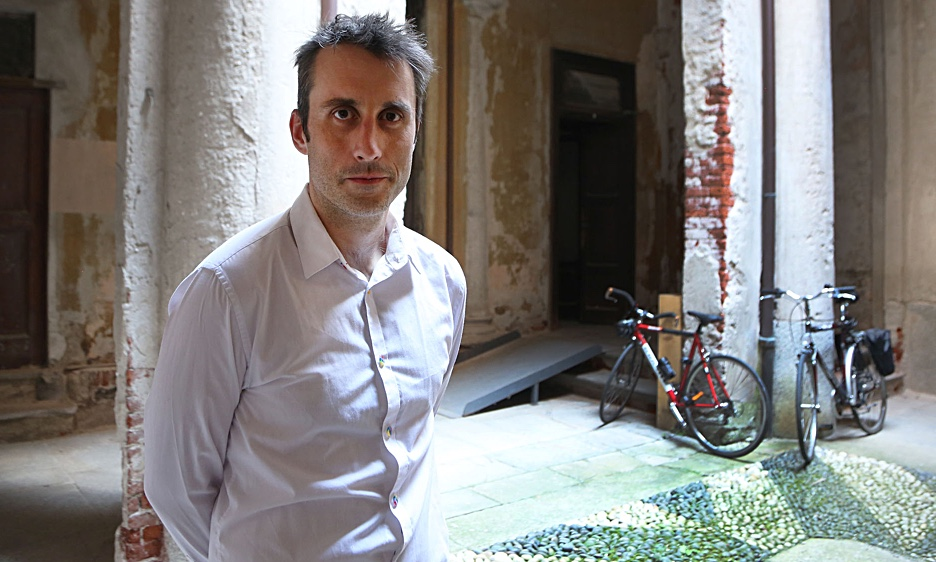
Courtesy Luciano Rossetti
Music, to me, is a generous space where we can work together and share languages.
His multifaceted artistic persona and rich array of connections across different domains were meticulously documented by John Sharpe in an extensive 2013 interview for All About Jazz, which we strongly recommend reading.
We recently met Alexander Hawkins at the Berliner Jazzfest, where he performed in two very different contexts that partially, but effectively, reflect his highly varied, exploratory, and original work. At the festival, he performed at the Haus der berliner Festspiele with the well-established trio Decoy, expanded to include the multi-instrumentalist Joe McPhee. McPhee, at the age of 85 a true icon of Black music and contemporary improvisation, is a profound point of reference. Hawkins also performed in a duo with Swedish vocalist Sofia Jernberg at the A-Trane club. Our conversation began with this significant collaboration.
All About Jazz: In the liner notes for your album Musho (Intakt Records, 2024) with Sofia Jernberg, written by David Toop, the duo invites us to consider profound themes like displacement, migration, identity, responsibility and intuitive listening. From your perspective, has the relationship with these elements—particularly listening—changed over the years, from your beginnings to the present day?
Alexander Hawkins: That's a fascinating question, as we don't often think of listening in a forward-looking way. It's like observing something: standing at one end of a bridge offers a different view compared to standing on the other end. I believe listening works similarly. Context and experience shape how we perceive and organize sounds. So, inevitably, I now hear things differently than I did 20 years ago. The more challenging question is, "How has listening changed?" For instance, the current state of the world highlights how music is both fundamental and universal, yet fragile and precarious.
It's a privilege to do what we do at a time when people, mere miles away, lack access to clean water or face daily violence. Sound is universal, but it's also a privilege—it should be a right. Concerts become spaces for shared experiences, making music profoundly valuable. However, without acknowledging how fortunate we are, our work risks feeling trivial. Throughout music history, it's evident that music can be a potent social tool, though we're also vulnerable and powerless in some respects.
AAJ: That's a deeply reflective perspective.
AH: It's something I care about deeply. Musicians often present themselves as radicals or socially engaged figures, which is important. But truly radical individuals are those working in healthcare, or with refugees. Such realities shape our listening contexts and prompt serious reflection on the world, sound, song, and experience. These questions, though vast, compel us as listeners and performers to reflect on our circumstances, perhaps enabling us to contribute to broader social change.
AAJ: Let's turn to the duo with Sofia Jernberg. With its blend of popular music, songs and improvisation, how does this collaboration differ from other duos you've worked with?
AH: I love this duo; it's truly special. Sofia is a genius—a term I use cautiously because it's overused. Working with her is pure joy. At a basic level, we share many musical languages. Both of us are familiar with jazz and have experience with contemporary classical music, as well as older classical traditions. We also share a deep curiosity about global folk traditions, often exchanging discoveries. This openness allows us to transcend stylistic boundaries.
Music, to me, is a generous space where we can work together and share languages. Playing with Italian musicians, for instance, feels like learning a bit of their language. It's a sign of respect and creates a dynamic tension. With Sofia, our duo has a vast reservoir to draw upon. We're deeply involved in avant-garde music, yet when we focus solely on a song, it generates a unique energy because the possibility of something unexpected always lingers in the background.
This interplay reminds me of Albert Ayler, who could play melodies in ways that hinted at uncharted possibilities. With Sofia, there's an understanding and mutual trust. Even if our approaches seem unrelated, we're always in sync.
AAJ: How did your collaboration with Sofia begin?
AH: We first played together at the BimHuis in Amsterdam in 2016, during the October Meeting. The festival's format allowed musicians to suggest collaborations. Sofia had performed with the great Ethiopian musician Hailu Mergia, while I had worked extensively with Mulatu Astatke. Someone, perhaps Huub van Reel, the artistic director of BimHuis for four decades, proposed that we perform together. We played two Ethiopian traditional songs, which remain in our repertoire. The chemistry was immediate.
Bogdan Benigar of the Ljubljana Jazz Festival, who was in the audience at that concert, invited us to perform a full program the following year, and the partnership has continued since. Though we're both busy with other projects, we reunite for festivals. Each performance feels as though we last played only the day before, thanks to our musical and personal empathy.
AAJ: Has the duo evolved over time?
AH: Absolutely. While Ethiopian repertoire remains central, we've expanded to include Swedish folk songs, an Armenian piece, and an English song—all deeply meaningful to us. The repertoire and approach keep growing. Musically, this duo is one of my greatest joys.
AAJ: The duo's CD, Musho, was released in April 2024 by Intakt. What does the title mean?
AH: Musho is an Amharic word meaning "sad song"—a lament, akin to an Ethiopian Otis Redding.
AAJ: Let's discuss Decoy and your Berlin concert with Joe McPhee.
AH: Decoy began as a trio with John Edwards on bass and Steve Noble on drums. Our first two albums, Spirit and The Deep, were recorded in 2009. Early on, we invited Joe to join us. Despite being billed as a guest, Joe feels like a core member. His presence on stage is magnetic. At 85, he brings a history and energy that inspire us to create spaces where he can express himself fully.
Joe's versatility spans free jazz, poetry, and experimental works. It's a privilege to provide a canvas for his multifaceted artistry. The visceral sound of the Hammond organ, coupled with the physicality of the Leslie speaker, makes our live performances uniquely powerful.
AAJ: Few musicians of your generation play with veterans like Anthony Braxton, Wadada Leo Smith, and Evan Parker. How did you enter in this exclusive circle?
AH: I've been fortunate. Younger musicians often consider themselves radicals, but many elders, like Braxton, remain visionaries. To develop my music, I immersed myself in the past, avoiding repetition. This preparation enabled opportunities, such as joining Louis Moholo-Moholo's band. Music education often risks conservatism, but empirical learning from elders and live performances has been invaluable. Learning from younger musicians is equally inspiring and underscores the openness needed to appreciate music's boundless sources of knowledge.
AAJ: Let's talk about your relationship with Italian musicians, especially Roberto Ottaviano. What can you tell us about this experience?
AH: Roberto contacted me in 2013 to participate in a tribute album to Steve Lacy. I am a huge fan and student of Lacy's music. Roberto initially became aware of my work when he heard me play with Louis and invited me to play on the Lacy record. Since then we have done various things together, including as a duo. Mal Waldron, one of my heroes, was a duo partner of Steve Lacy for a long time and also played duo with Roberto.
AAJ: Recently you worked with Marco Colonna on a live duo recording with him on bass clarinet, Dolphy Live Underlined!!!, recorded in October 2024 at the Multiphonics Festival in Cologne and released on Bandcamp. How did you two connect?
AH: I met Marco through Roberto. We've been playing a lot of Dolphy's music recently, and some of Marco's original music, which is incredible.
AAJ: How about your other contacts with Italian musicians?
AH: The first Italian musician I played with was Zeno De Rossi, when we worked with Wayne Horvitz, maybe in 2010 or a bit later, together with Zeno, Danilo Gallo and others in that circle. Then Massimiliano Milesi., Giovanni Maier, whom I knew, of course, through the Italian Instabile Orchestra, ... many people.
There's such an amazing heritage in Italy, with Giorgio Gaslini, Enrico Rava, Mario Schiano. These people have a very deep tradition. I have always admired Italian musicians because they speak the jazz language with an Italian accent. If I am in Europe, I don't want to hear people pretending to be in New York, because they are not. So play like yourself. Of course, jazz is a global language, a Creole, so it's insincere to pretend you are not American. So take the language, but speak it with your own accent. This is distinctive about many Italian musicians, which I really admire.
AAJ: Do you think there's a mental connection between musical language and spoken language?
AH: Of course, the rhythms. One of my heroes is Leoš Janáček. You can't understand Janáček's rhythmic language without understanding the sound of the Czech language. And it should be like this everywhere.
AAJ: Very interesting.
AH: In the duo with Sophia Jernberg, when she sings in Amharic, the music behaves differently than when she sings in Swedish or English. So I am always interested in musicians who have huge open ears, but also don't deny where they are from.
AAJ: Among the Italians, are there any new talents you know of?
AH: Recently, I have had the privilege of meeting and playing with younger Italian musicians. Francesca Remigi, for example, is exceptional, and Giacomo Zanus from Bologna is an incredible guitarist. Also, the bassist Ferdinando Romano. From the older generation, I'd like to mention Giorgio Pacorig, an incredible pianist, and Pasquale Mirra. I know so many brilliant musicians. I think the Italian music scene is incredibly interesting and very healthy. I am a big admirer of the scene and I am very fortunate to play there a lot.
Tags
Interview
Alexander Hawkins
Ludovico Granvassu
John Sharpe
extensive 2013 interview
Berliner Jazzfest
Joe McPhee
Sofia Jernberg
Albert Ayler
Bimhuis
Hailu Mergia
Mulatu Astatke
Otis Redding
John Edwards
Steve Noble
anthony braxton
Wadada Leo Smith
evan parker
Louis Moholo-Moholo
Roberto Ottaviano
Steve Lacy
Mal Waldron
Marco Colonna
Zeno De Rossi
Wayne Horvitz
Danilo Gallo
Massimiliano Milesi
Giovanni Maier
Giorgio Gaslini
Enrico Rava
Mario Schiano
Francesca Remigi
Giacomo Zanus
Ferdinando Romano
Giorgio Pacorig
Pasquale Mirra
Comments
About Alexander Hawkins
Instrument: Piano
Related Articles | Concerts | Albums | Photos | Similar ToPREVIOUS / NEXT
Support All About Jazz
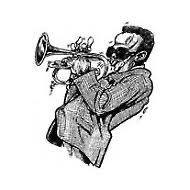 All About Jazz has been a pillar of jazz since 1995, championing it as an art form and, more importantly, supporting the musicians who make it. Our enduring commitment has made "AAJ" one of the most culturally important websites of its kind, read by hundreds of thousands of fans, musicians and industry figures every month.
All About Jazz has been a pillar of jazz since 1995, championing it as an art form and, more importantly, supporting the musicians who make it. Our enduring commitment has made "AAJ" one of the most culturally important websites of its kind, read by hundreds of thousands of fans, musicians and industry figures every month.

